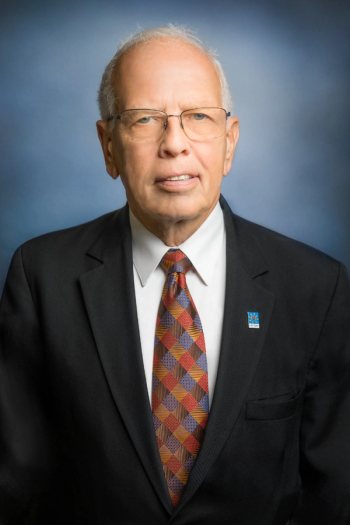
Precision Medicine Cutting-Edge Developments: What Health Execs Should Know
The current state of precision medicine and how it could soon help doctors predict diseases before the onset of symptoms.
Precision medicine is causing a paradigm shift from treating diseases to detecting them before symptoms even appear.
That’s according to Kevin Hrusovsky, CEO and chairman of
“Currently, diseases are detected and treated after the onset when symptoms are already present,” said Hrusovsky. “With precision health, doctors will be able to monitor proteins and biomarkers in the blood to understand a patient’s baseline levels, and therefore, be able to detect diseases before symptoms are even present, leading to better diagnosis and treatment.”
Currently, patients only go to the doctor when they are sick, when symptoms of a disease have already presented themselves, according to Hrusovsky. Seeking treatment earlier could save millions in healthcare dollars and unnecessary treatments.
“While symptoms may be the first noticeable sign of a problem, by the time they present themselves, especially with the most devastating diseases, like Alzheimer’s and pancreatic and lung cancer, the disease has progressed to the point where it is too difficult or costly to treat properly,” he said. “If physicians had a way of monitoring a patient’s health indicators, they would know immediately when a disease is first beginning to develop, and patients would be able to seek help right then.”
Furthermore, many patients seek out treatment for a disease and, ultimately, the treatment isn’t effective or responsive to the patient, which drives up the cost of drugs and treatments, Hrusovsky said.
“If we’re able to see the biomarkers in a patient’s blood through a noninvasive test, then doctors can understand immediately which drug treatments are most effective,” he said. “Realizing the full potential of precision medicine and, eventually, precision health is key for the future of our healthcare system.”
Hrusovsky envisions a time when healthcare providers will be able to see a developing tumor coming months or even years before it becomes visible or symptomatic.
“We already have the technology and science at our fingertips to make this possible, we just need to change today’s reactive ‘sick care’ to true proactive, preventative, precision health,” he said. “At a time when the U.S. life expectancy is declining, it’s even more urgent and imperative to implement precision medicine and precision health strategies. With precision health, by the year 2030, our healthcare will cost 40% less and be 60% more accessible-that is why precision medicine is important.”
Protein biomarkers
While biomarkers aren’t new, Hrusovsky said that they are showing greater promise than ever before to transform our approach to healthcare across a wide spectrum of therapeutic areas.
“New research is surfacing every day demonstrating the power of biomarkers to show us exactly what is happening in a person’s body, and blood-based biomarkers are creating more opportunities to do this through simpler, less-invasive approaches,” he said.
While a lot of healthcare executives are keeping their eye on genetic developments, protein biomarkers shouldn’t be overlooked because genetics are not 100% prescriptive, he said.
“The presence of a particular gene or mutation may increase the probability of developing a disease, but does not guarantee it,” Hrusovsky said. “Proteins, on the other hand, are the products of those genes and tell you what is actually happening.”
Quanterix has more than 200 peer-reviewed studies proving that these biomarkers can see the earliest triggers of a disease, according to Hrusovsky.
“We’re also seeing pharmaceutical companies beginning to use digital biomarker technologies to develop precision treatments that not only improve patient outcomes but reduce the toxicity of potential drugs, which is a leading cause of death among patients, especially those exploring innovative therapies,” he said. “In the years ahead, healthcare executives should keep an eye on the burgeoning biomarkers market, as it’s going to play a key role in the new healthcare paradigm ahead.”
Precision medicine to precision health
The future of precision medicine is a radical shift to precision health, according to Hrusovsky. “The key difference is that today’s precision medicine techniques are used to treat disease, whereas tomorrow’s precision health approaches, enabled by recent technological advancements in biomarker detection, will allow medical professionals to monitor healthy individuals and prevent disease before it even begins,” he said.
Hrusovsky foresees biomarker detection technologies enabling doctors to take advantage of a “Waze of the Body,” which will show them exactly what is happening within a patient’s body via a simple, noninvasive, and cost-effective blood test.
“This will be much like how we test for cholesterol today, but in the future, biomarkers will allow these blood tests to show us so much more, so doctors can begin combating diseases at stage zero-not stage three or four,” he said. “Through ongoing monitoring, doctors will know the instant a patient deviates from their healthy baseline, creating the potential for a future where we may never get sick at all-turning precision medicine into precision health.”
Hrusovsky shared three things he wanted healthcare executives to know about precision medicine:
- Understand the future of precision medicine, and the potential of precision health. “We’re shifting from managing disease by treating symptoms to preventing disease through earlier diagnosis and preventative health scanning,” he said.
- Understand the role new technologies are playing in enabling this shift. For example, digital biomarker technologies are providing researchers, pharmaceutical companies, and scientists with the means to understand exactly what is happening in a patient’s body at that very moment through an easy-to-administer blood test. “This ability to identify and read proteins at their smallest concentrations is allowing several advantages, including earlier detection of disease (i.e., when a patient navigates away from their healthy baseline) and reduced risk of drug toxicity when undergoing new therapies, which is a critical hurdle the industry must overcome, as it is a leading cause of death among patients,” he said.
- There are numerous implications that precision health has for the larger healthcare industry. “By shifting to a more preventative healthcare system, we will be able to reduce healthcare costs significantly worldwide, improve access to doctors and treatments, and lengthen the human life expectancy by nearly a decade,” he said.
Newsletter
Get the latest industry news, event updates, and more from Managed healthcare Executive.

























